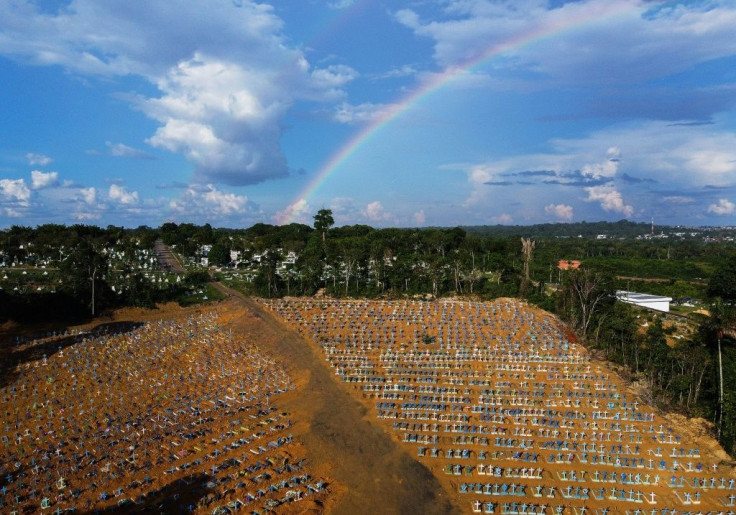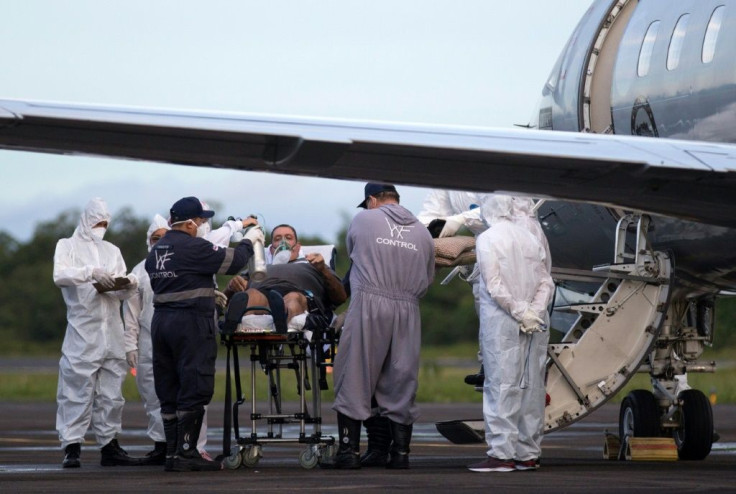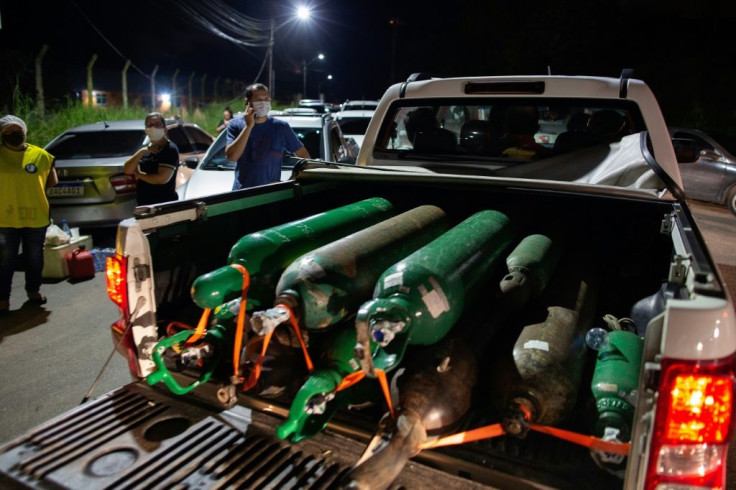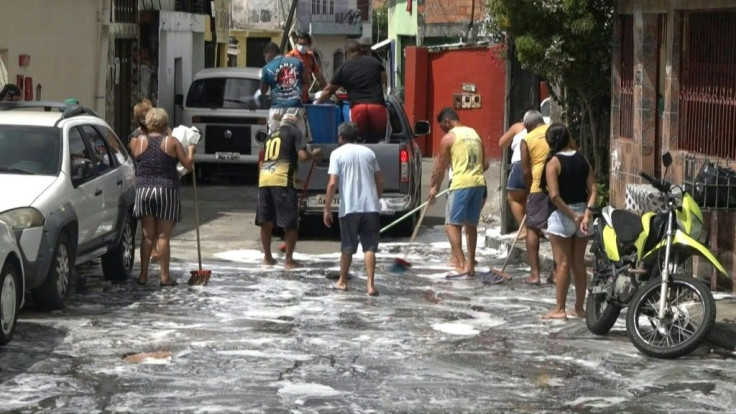Desperate Search For Oxygen In Brazil's Crisis-hit Manaus
In Manaus in the north of Brazil, residents can no longer rely on the state to treat loved ones suffering from Covid-19.
Instead of taking them to hospitals, relatives of the stricken wait up to 12 hours under a blazing sun to buy their own oxygen supplies.
"Everyone here has a family member being treated at home. They prefer that to leaving them to die in the hospitals," said Fernando Marcelino, indicating the dozens of people waiting like him at the new oxygen market.

In Amazonas state, whose capital is Manaus, a second coronavirus wave has hit hard, and the health system is at breaking point.
The oxygen shortage has exacerbated the public health crisis in Manaus, which already was one of Brazil's worst-hit cities during the pandemic's first wave.
The disease has killed more than 210,000 people throughout the country.
To make matters worse, a new Covid-19 strain believed to be much more contagious was recently detected in Amazonas.

The state is the second-worst-affected of 27 Brazilian states, with 149 deaths per 100,000 inhabitants.
In Manaus, a city of 2.2 million, that figure shot up from 142 to 187 in recent days.
The central government has been criticized for its passive response to the crisis.
It is now trying to increase oxygen shipments to Amazonas, which is connected to the rest of the country primarily by air and river.

The government also helped evacuate patients to other states for treatment.
"The oxygen is arriving, but we don't know how long that will last for," said Marcelino, wearing two masks, gloves and goggles.
An evangelical preacher, Marcelino found out about a company in the city's industrial zone that sells oxygen to those with cylinders for 300-600 reales ($57-$114), depending on the size.
Dozens of cars line up, waiting to make a purchase.

A 37-year-old man who didn't give his name showed AFP a video filmed in a public hospital where a family member is receiving treatment.
"This is inhuman," he said at the sight of beds lined up in the corridors.

"Saturday was our worst moment because the oxygen was running out," said Roberto Freitas, a site manager who spent two days desperately trying to source oxygen for his sister-in-law's father.
An employee at the town hall suggested he hire a refrigerated truck used to store corpses.
"You don't know what to think, only the worst, you just cry," said the 32-year-old worker.
Having managed to get hold of a cylinder, he found out from neighbors about a company supplying oxygen and joined the dawn queue.
Freitas is also afraid for his father. He has started displaying coronavirus symptoms but Freitas doesn't want to send him to hospital.
He's learned a lot about administering oxygen from the internet and conversations with a doctor friend.
"We're becoming doctors," he quipped.
Even health care workers are afraid of being treated in hospital.
Luciana Leal, a 26-year-old nurse, waited all day with her cylinder, still wearing her blue uniform.
She was eager to get a colleague out of the main specialist Covid-19 center in Manaus.
"She started showing symptoms during the week. We managed to stabilize her at home but our oxygen ran out and we had to take her to hospital," she said.
"We're afraid of contracting other infections, it's safer at home because there are many bacteria and fungi in hospital."
Like everyone else, Leal was crowding around a metal barrier guarded by police.
It was already nighttime before the first in line left with their cylinders filled.
The rest kept watching, motionless.
The nighttime curfew to slow the spread of the coronavirus was due to start at 7:00 pm, after which they could be fined.
Some didn't care, though.
"What scares me is not bringing that oxygen home today," said Fabio Costa, who arrived at midday.
© Copyright AFP 2024. All rights reserved.





















